
 Flash News
Flash News
Scandal/ Large amounts of oil spilled in Vjosa National Park, is UNESCO status at risk?
Accident on the Puka-Shkodra axis, two injured
Parliamentary Assembly delegation report for May 11: SP used the administration in the campaign, there was pressure on voters
Memli Krasniqi re-elected as PDK chairman
Israel says it has eliminated another top Iranian commander
Republika Srpska declares the German minister persona non grata, after sanctioning its leaders
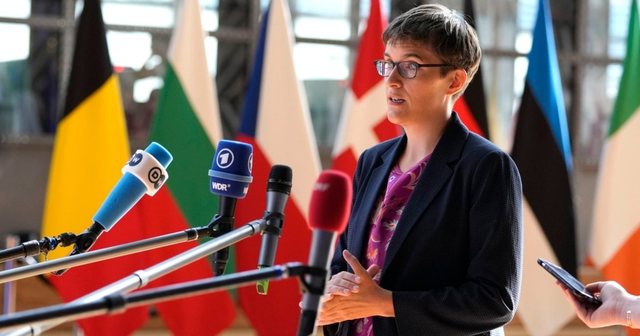
The government of Republika Srpska declared the German Minister of State for Europe and Climate, Anna Luhrmann, persona non grata – or undesirable on Friday, a day after Germany banned the leaders of this entity from Bosnia and Herzegovina from entering the country.
Germany and Austria announced on Thursday that the three leaders of the Bosnian Serb entity: President Milorad Dodik, Prime Minister Radovan Vishkovic and National Assembly President Nenad Stevandic, will be banned from entering these two countries because they have incited a constitutional crisis in Bosnia.
The Government of Republika Srpska said that the mentioned measures against it by Germany, as well as public statements and today's visit to Republika Srpska by Minister Luhrmann, are "direct interference in internal affairs and violation of international conventions".
"In order to protect the political and institutional integrity of Republika Srpska, the Government introduces reciprocal measures, which represent a proportionate and legitimate response in accordance with international practices," the Republika Srpska Government said on Friday.
She said that for this reason she has decided to declare Luhrmann an undesirable person in Republika Srpska.
Germany and Austria said in their verdict on Thursday that attacks on the constitutional integrity of Bosnia and Herzegovina by key politicians of Republika Srpska "are unacceptable and pose a threat to the security and stability of Bosnia and the entire region".
In March, the Court of Bosnia and Herzegovina issued national summons to Dodik, Vishković and Stevandiqu, accusing them of violating Bosnia and Herzegovina's constitutional order with their actions.
All three have ignored the authorities' summons to appear for questioning.
Dodik is under sanctions from the United States and the United Kingdom, but the European Union has so far been unable to find common ground on sanctions against him, due to opposition from its member, Hungary.
Western governments believe that Dodik's actions are aimed at separating Republika Srpska from Bosnia.
Dodik was sentenced in February to one year in prison and banned from serving for six years for ignoring the decisions of the international High Representative.
In response, Republika Srpska's Parliamentary Assembly passed laws prohibiting the work of the Court, the Prosecutor's Office, the State Investigation Agency (SIPA) and the High Judicial and Prosecutorial Council of Bosnia on the territory of this entity.
Dodik decreed those laws on March 5.
Republika Srpska passed a draft of the new constitution in March, which would define the entity as a state of the Serb people, give it the right to self-determination and establish its own army.
All of these directly contradict the Bosnian Constitution and the Dayton Peace Agreement, which defined Republika Srpska as one of Bosnia's two entities.
The Constitutional Court of Bosnia and Herzegovina declared these laws unconstitutional.
Këto veprime të Republikës Sërpska janë dënuar pothuajse në mbarë botën, nga sekretari amerikan i shtetit Marko Rubio, te shefi i NATO-s Mark Rutte dhe disa ambasada të huaja në Bosnje e Hercegovinë.
Sipas Kushtetutës së Bosnje e Hercegovinës, Republika Sërpska dhe Federata Boshnjako-Kroate janë entitete e që përbëjnë Bosnjën dhe ato nuk gëzojnë kompetencat e shtetit. Prandaj, sovraniteti dhe integriteti territorial janë të rezervuara vetëm për shtetin e Bosnje e Hercegovinës dhe jo për entitetet e saj.
Gjatë mandatit të tij si president i Republikës Sërpska, Dodik është përballur me kritika për prirje autoritare, minimin e institucioneve demokratike dhe krijimin e një kulture të patronazhit politik./REL
Latest news


Iranian President: We will not stop nuclear program
2025-06-21 21:46:32
Europe hit by first heat wave: Up to 40°C expected this weekend
2025-06-21 21:19:19
Borussia Dortmund claim first win in Club World Cup
2025-06-21 20:56:04

Accident on the Puka-Shkodra axis, two injured
2025-06-21 20:05:04

ChatGPT can damage your brain, here's what the study says
2025-06-21 19:20:25


Belarus opposition leader released after five years in prison
2025-06-21 18:22:57
Renowned journalist and teacher in Korça, Vehbi Furxhi, passes away
2025-06-21 18:06:16
Accident in Fier-Levan, two injured
2025-06-21 17:43:25
Tourism in traffic, when roads undo success
2025-06-21 17:25:31

Broja on the verge of leaving Chelsea, 4 teams in talks for midfielder
2025-06-21 16:42:02
Iran confirms death of tenth nuclear scientist
2025-06-21 16:24:28

The Balkans as a warehouse for migrants?
2025-06-21 15:49:53
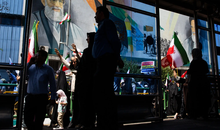
Khamenei names potential successors if he is killed
2025-06-21 15:10:58


Memli Krasniqi re-elected as PDK chairman
2025-06-21 14:29:12



Israel says it has eliminated another top Iranian commander
2025-06-21 12:43:26

Iran and Israel exchange new attacks, Tehran rejects talks with the US
2025-06-21 12:00:20
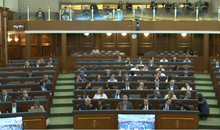
The impasse continues, the constitution of the Assembly fails for the 35th time
2025-06-21 11:14:23

Report: Cadastre ignores Parliament and ALSAI recommendations
2025-06-21 10:35:59
Car loses control on Tepelena-Kelcyrë road, driver injured
2025-06-21 10:14:47
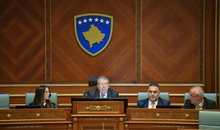
It failed 34 times, today a new attempt to constitute the Kosovo Assembly
2025-06-21 09:37:02
Foreign exchange, June 21, 2025
2025-06-21 09:17:10


With temperatures up to 35 degrees, check out today's weather forecast
2025-06-21 08:15:54
Morning Post/ In 2 lines: What mattered yesterday in Albania
2025-06-21 07:58:20


Dance with the mask of evil
2025-06-20 21:11:50
Matura 2025, Albanian Language and Literature exam grades published
2025-06-20 20:40:37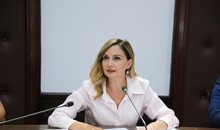
Tabaku: Albania has African wages and European prices
2025-06-20 20:33:02


UK temporarily withdraws embassy staff from Iran
2025-06-20 19:16:02
How Albania became the country with the highest cost of living
2025-06-20 18:49:11


Hail and strong storm "grab" Belshi
2025-06-20 17:35:56

School closures increase parents' financial burden during the summer
2025-06-20 16:49:19
KAS dismisses SP over vote revaluation
2025-06-20 16:34:02


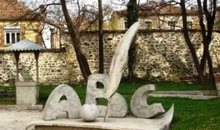
Albanian language included in official communications of New York public schools
2025-06-20 15:08:35
Accident in Italy, 46-year-old Albanian dies (NAME)
2025-06-20 14:50:50
Kosovo in electricity crisis, KESCO appeals to citizens: Save electricity!
2025-06-20 14:29:55
Meta: Disinformation against me, a product of government propaganda!
2025-06-20 14:08:44
The American obsessed with Albania, a country he would write an anthem for
2025-06-20 13:39:41
Berisha: SPAK is throwing candy to protect Gys Agas and Rama!
2025-06-20 13:30:02
"Elections an electoral crime"/ Berisha warns of protests at home and abroad
2025-06-20 13:09:59


Reported missing a day ago, elderly man found dead in Peqin
2025-06-20 12:19:21
Drug gangs in Tirana cracked down, 24 arrested, 8 wanted (NAMES)
2025-06-20 11:57:38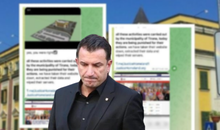


You win the elections like Edi Rama - but justice won't allow you in Switzerland
2025-06-20 11:10:28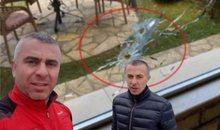
Bullets fired at Arjan Ndoji's former driver's bar, 15 shells at the scene
2025-06-20 10:48:02
Vokshi reports Vilma Nushi to SPAK, files lawsuit for "Check Up"
2025-06-20 10:31:54
Requests release from prison, hearing for former president Meta ends today
2025-06-20 10:15:50

Bullets fired at a bar in Fushë Krujë, police surround the area
2025-06-20 09:34:34



Foreign exchange, how much foreign currencies are bought and sold today
2025-06-20 08:40:20

Clear skies and cloudy skies, today's weather forecast
2025-06-20 08:00:26
Morning Post/ In 2 lines: What mattered yesterday in Albania
2025-06-20 07:50:05
Noka reveals Rama's condition for Veliaj to resign
2025-06-19 22:53:43
Vote recount in Tirana, Kaso: We did not have the 14th mandate as our objective
2025-06-19 22:44:53




Noka: Policemen were running from morning to night for SP votes
2025-06-19 21:31:03
The three zodiac signs that will be disappointed in love this month
2025-06-19 21:18:48
Accused of murder due to blood feud, 48-year-old arrested in England
2025-06-19 21:06:57
Vasili releases video: Tirana-Kashar segment full of gravel, no workers around!
2025-06-19 21:00:48

Tirana without a coach, four names considered for the white-and-blue bench
2025-06-19 20:21:12

